There are two things movie geeks love more than anything else: Movies, and complaining about movies. I myself enjoy/loathe many aspects of the moviegoing, and am more than happy to get in to heated debates over the cinema experience. Still, there are a few common things I find nearly unforgivable, that leave me shaking my head in my seat. So, in the hope of commiseration, I present to you my top eight movie annoyances, with the few exceptions to the rules.
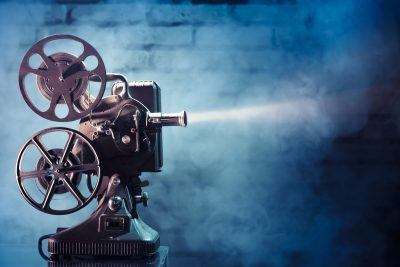
- Exposition, Exposition, Exposition
Look, I get it. Sometimes, you just need to move a story along, and the quickest way to do that is to just have people talk about it. It’s a lot easier (and cheaper) to have two people talk about some epic event off-screen than to show it. It can even be more meaningful, to have a well-written moment convey the emotional connection to the happenings of the plot.
My annoyance comes when they eat up a ton of screen time with innocuous and unnecessary information, which, if removed, wouldn’t make a difference to the storytelling as a whole.
A large offender of this crime was the now-infamous Star Wars prequels, which were so weighed down by unnecessary dialogue that lightsaber fights could barely shake me from the coma it had induced.
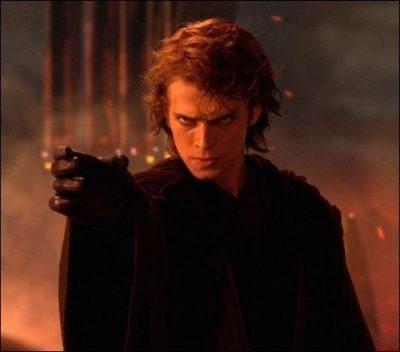
And it really takes a lot for me, too, so don’t think I’ve gone full Michael Bay about this (I think if he goes three minutes without exploding something, he passes out or something). When Palpatine is recounting the powers of Darth Pelagius to Anakin, I usually take a snack break. The story itself is moderately interesting (and may actually play a role in the upcoming films, which will up its relevance), but could have been summed up in a line or two, rather than taking an entire scene.
The Exception:
LoTR: The Fellowship of the Ring
There’s so, so, so much information that is imperative to be communicated, and the characters presenting it are varied and captivating. I would argue that the Lord of the Rings films are actually about communication and trust, and with that being the focus, it is to be expected and appreciated.
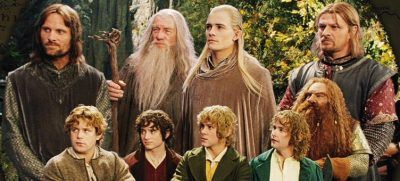
- And Now, a word from our Sponsors…
Movies are expensive. It’s not a secret. But if you’re unable to make enough coin in ticket sales and merch, please don’t pad the film with super-obvious product placement.
The offenders of this simple rule are varied in their use and ridiculousness, from the subtle Levi’s on a de-spangled Captain America, to the ridiculous product-fest that was Jurassic World.

I understand that you are parodying a theme park, and that it would be natural to have prominent brand placement, but when the core problem of the plot is an inability to communicate due to failing electronics, having Samsung plastered to every piece of tech is probably a very bad choice.
The Exception:
Talladega Nights
The product placement in this film is hilariously tounge-in-cheek, and lampoons the sport it represents, while still instilling solid branding to the viewers.

- Hey, is that the Director?!
Oooooh, this one makes my teeth itch. Writers, directors, and the like put a ton of themselves in to their work. But when they actually put themselves physically in to the film, I feel it completely takes away from the narrative. I’m suddenly not focused on the adventures Middle Earth, but rather Peter Jackson and his low beta-carotene levels (Mr. Jackson, I’m a fan, so I’m sorry. But just eat your rabbit food offscreen.).
Even Peter Jackson’s cameos aren’t really that bad, when compared to the king of awkward self-insertion: M. Night Shyamalan.

Not only is he in his own films, he usually plays an integral role, conveying some plot-propelling point. The appearances are often almost non sequitur as well, and so jarring in the context of the film that even folks not aware of his habit would question it. At the end of the day, it just feels… narcissistic, I guess? At the very least, it is insanely difficult to get an honest and poignant performance out of an actor when the only perspective they’re getting is from themselves.
The Exception:
Stan Lee. Stan Lee always gets a pass.

- The Part your Parents Always Walk in During
Let me start by saying this: I am not universally opposed to profanity or questionable behavior in a film, so long as it serves a purpose. I don’t tend to watch a ton of films with these types of things in them (Disney films are kind of my wheelhouse), but that doesn’t mean there isn’t a time and place for a well-chosen word or action in a movie.

The tipping point for me is when the movie is clearly saying and doing these things to be edgy, or appeal to those seeking the inappropriate. Gratuitous use of crass language or risqué content is a sign of laziness to me more than anything. These words and visuals have an inherent impact, but they get watered down the more you use then.
It’s like getting slapped in the face. If you get hit one unexpectedly, it has some pretty significant impact. If you know you’re gonna get hit three times at the same times every day, it just becomes annoying and painful.
The Exception:
Star Trek: Generations
Data receives an emotion chip, and begins to have reactionary experiences to things, including a crashing spaceship while he is at the helm. His choice of words felt very appropriate to me.

- Misrepresenting Mental Health
This is a tough one for me. As a person intimately familiar with the challenges faced by those with mental and emotional health concerns, it can be difficult to watch bad representations in film. There are so many misconceptions about what depression, anxiety, and others look like, and even more so how they are addressed and assisted.
A surprising example of this comes from Pixar’s Finding Dory, which focuses on mental health concerns.

The character Bailey, a beluga whale, deals with some form of block preventing him from using his echolocation. The film goes out of its way to note that there is nothing physically wrong with him, and that it is some form of cognitive distress causing the ailment. As the film progresses, Bailey is “cured” of his affliction, by… well. Just getting over it, it seems (as required by the plot). This is wholly inaccurate on how mental health should be addressed, and furthers the dangerous notion that a person (or whale) can just overcome a mental health issue by deciding to. The intention and desire to better one’s mental state is very helpful and important, but it is not just a switch to be turned on or off.
The Exception:
Inside Out
Proving that Pixar does have the chops to represent mental health well, Inside Out gives a wonderful look at the inner workings of a distressed mind. So many important truths are visualized, from the importance of accepting negative emotions, to the dangers of removing emotion entirely.

- Hello, Audience!
Breaking the fourth wall is a very difficult technique to do well. By being “self aware,” a film risks ruining the suspension of disbelief (an essential element for most entertainment) to poke fun or make a point about something. I really enjoy when a film can pull it off, but it can get old very quickly, and if it’s done poorly, it completely turns me off to the story.
While there are many bad examples of fourth wall breaking, the worst tend to involve celebrities (usually not actors) making an appearance for appearance’s sake. The one that comes to mind is the classically-awful Gremlins II (if you haven’t seen it, don’t), where the film itself is interrupted by the titular monsters messing with the projector in the theater. Fortunately for the movie (and unfortunately for us), none other than Hulk Hogan is in the audience to give them what-for.

Yes, it really is that bad.
The Exception:
Deadpool
While offensive in every which way but bad, the spandax’d lead not only breaks the fourth wall, but demolishes it for the majority of the plot. This somehow manages to not get old, and pays homage to the original comic book character, which does much the same (so much so that some theorize that being self-aware is actually his real superpower).

- Bad at Being Evil
Playing a villain in a movie is tricky business, and takes a certain skill. Some actors, like Christoph Waltz and the late Alan Rickman, made acting careers out of playing really good bad guys. It all comes down to motivation. A well-written and well-acted villain usually doesn’t see themself as the bad guy, and has (what they see as) good reasons for what they do.
Then there’s General Grievous from Star Wars: Ep. III (That’s right. A second hate on the prequels.).

The cyborg general doesn’t really seem to have any motivation other than, “Hey, I’m the bad guy. Better go fight those good guys.” To make matters worse, he is defeated in a terribly uninteresting fashion (getting blaster’d by a Jedi is like eating a wet sponge. Silly and unpleasant.). A flat, one-dimensional character just being evil for evil’s sake.
The Exception:
Doctor Horrible
In a fun romp of following the bad guy’s rise to horribleness, it’s oddly satisfying to see Neil Patrick Harris’ character being aspirational in his evil. Sure, he gets motivation to be a villain by the end of the plot, but he starts as just a bad guy looking to be badder. Which is endearing. Weirdly.

- Saying the Title
Very, very few things are bad enough to make me actually want to walk out mid-movie. I can usually find enjoyment in the worst of things. But nothing bugs me more than blatantly plugging the title of the film in the film. Now, of course, most movies can and will reference the title at some point. That’s why it’s the title. It has something to do with the film. Star Wars is about space battles. Fight Club is about fight clubs (kinda).
Then there are movies like Fantastic Beasts and Where to Find Them, where the whole movie comes to a screeching halt so a character can reference it. While watching this film in the theater, the five or so friends in the theater with me all turned to me in that moment, well aware of my tick. If it weren’t at the end of the film, I may have left.
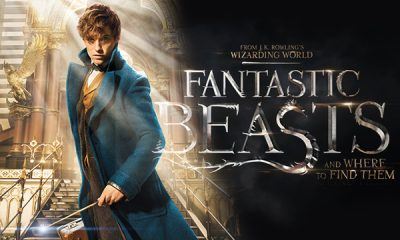
And there are plenty of other films that do it. The Dark Knight. Face/Off. Bruce Almighty. Super Mario Brothers (a reporter actually says the title. Verbatim. Like it’s a normal thing.).
You can feel how forced the title’s insertion in to the dialogue is. How poorly do you feel about your movie if you need to remind the audience during it what they are watching?!?
…I may need to sit down for a bit.
The Exception:
Jurassic Park
Yes, it is blatant. Yes, it is given its own moment. But Richard Attenborough, playing park founder John Hammond, sells the line so well that you are lost in the rapture of his creation.
Plus I really, really like dinosaurs you guys.
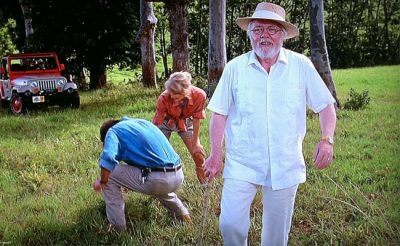
Roll the Credits
Now, there are sure to be many more things that irk you about movies, maybe more than those listed here. That, or you think I’m off-base in one or more of my complaints. Feel free to (attempt to) correct me in the comments below, and happy moviegoing!


Leave a Reply